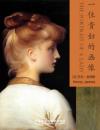《在笼中》发表于1898年,是亨利·詹姆斯利用科学技术批判大众文化并进行现代主义小说实验的一部重要作品。小说讲述了一位无名的女报务员因工作原因介入了一对情侣的感情生活。几番波折后,她终于决定和未婚夫成婚并向对方坦白一切。
Critics have generally been very kind to this relatively little-known story. The detailed and convincing portrait of the telegraphist has garnered much praise. More politically-inclined critics have appreciated James's ability to present a working-class woman with sympathy and accuracy. Some have compared the story to The Turn of the Screw, published just before In the Cage. The unnamed protagonists of both stories do display active imaginations, but the telegraphist seems much better grounded in reality. At least critics do not ask whether she has imagined Captain Everard and Lady Bradeen. A few critics have amused themselves by trying to guess exactly what the telegraphist deciphered from the telegrams between Captain Everard and Lady Bradeen. James himself said that he didn't know and he didn't want to know.
《在笼中》发表于1898年,是亨利·詹姆斯利用科学技术批判大众文化并进行现代主义小说实验的一部重要作品。小说讲述了一位无名的女报务员因工作原因介入了一对情侣的感情生活。几番波折后,她终于决定和未婚夫成婚并向对方坦白一切。
In the Cage is a novella by Henry James, first published as a book in 1898. This long story centers on an unnamed London telegraphist. She deciphers clues to her clients' personal lives from the often cryptic telegrams they submit to her as she sits in the "cage" at the post office. Sensitive and intelligent, the telegraphist eventually finds out more than she may want to know.
- CHAPTER I
- CHAPTER II
- CHAPTER III
- CHAPTER IV
- CHAPTER V
- CHAPTER VI
- CHAPTER VII
- CHAPTER VIII
- CHAPTER IX
- CHAPTER X
- CHAPTER XI
- CHAPTER XII
- CHAPTER XIII
- CHAPTER XIV
- CHAPTER XV
- CHAPTER XVI
- CHAPTER XVII
- CHAPTER XVIII
- CHAPTER XIX
- CHAPTER XX
- CHAPTER XXI
- CHAPTER XXII
- CHAPTER XXIII
- CHAPTER XXIV
- CHAPTER XXV
- CHAPTER XXVI
- CHAPTER XXVII
- 书评 写书评
- 笔记
-
书评加载中...













 京公网安备 11010802032529号
京公网安备 11010802032529号
笔记加载中...